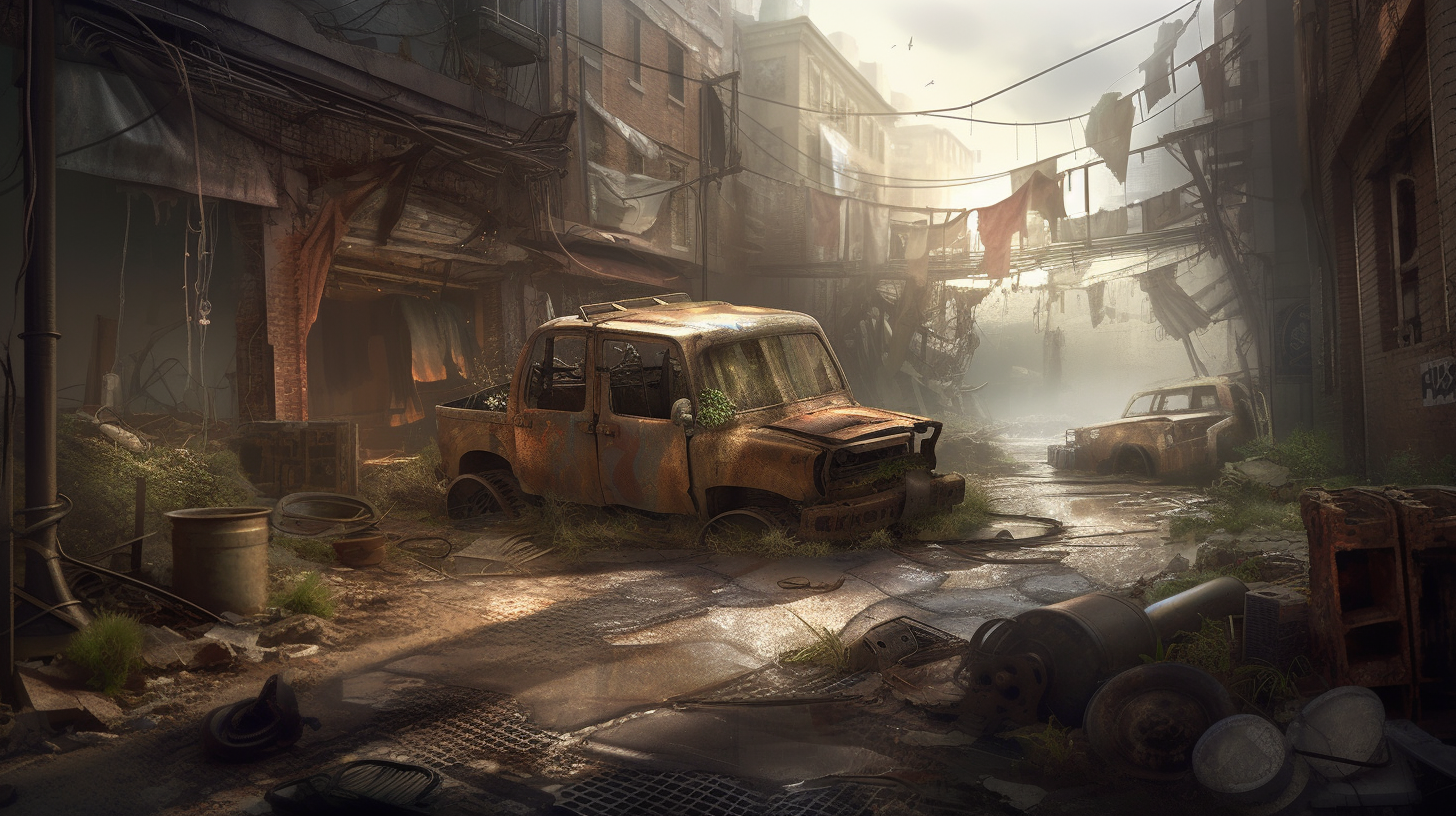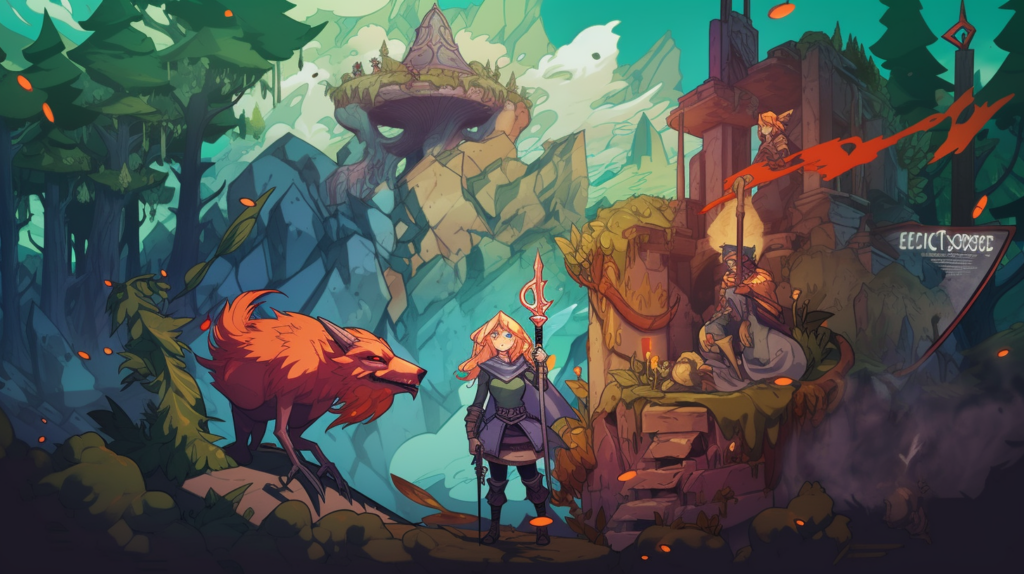A Guide to Game Engine Plugins: Expanding Your Development Toolbox

If you’re a game developer, you know that having a robust development toolbox is critical to your success. One of the most essential components of any game developer’s toolbox is their game engine plugins. These third-party tools integrate with your game engine and offer a range of features, from improved graphics and physics to new gameplay mechanics and AI. To fully understand the impact of game engine plugins, we will take a closer look at what kind of plugins are available and how you can use them to improve your game development process.
Table of Contents
Understanding Game Engine Plugins
Game engine plugins are add-ons or modules that can be used to extend the functionality of a game engine. They are created by third-party developers and offer a range of features that can help enhance the game development process. Some common types of plugins include:
Graphics Plugins
Graphics plugins can help improve the visual quality of your game by providing access to new shaders, lighting systems, post-processing effects, and more. These plugins aid developers in creating more realistic and visually stunning game worlds. These plugins are also vital to cutting down development and render times, and helps with ensuring game developers can meet with publisher deadlines.
Physics Plugins
Physics plugins can help add more realistic physics to your game by providing access to new collision detection systems, force fields, and other physics-related tools. Advanced physic options or features outside your core engine are only available through physics plugins. Because of this, every game developer keeps a few key options available throughout their game development process.
AI Plugins
AI plugins can help create more intelligent and responsive NPCs in your game by providing access to new path finding algorithms, decision-making systems, and other AI-related tools. Writing a custom AI can often increase development time, but with plugins pre-built options are available. With self-learning AIs becoming more accessible, AI plugins are expected to continue to evolve and become more advanced over time.
Audio Plugins
Audio plugins can help improve the sound quality of your game by providing access to new sound effects, music tracks, and other audio-related tools. With the help of these plugins, you can create more immersive and engaging audio experiences.
Why Are Game Engine Plugins Important?
Game engine plugins allow you to expand the functionality of your game engine beyond its built-in capabilities. They can help save time and effort by providing pre-built tools and systems that you can use to enhance your game development process. With the help of game engine plugins, you can:
- Speed Up Development Time
- Game engine plugins can help speed up your development time by providing pre-built tools and systems. Instead of spending time and effort building these tools from scratch, you can simply use a plugin that already has the functionality you need. This can help save time and effort and focus on other aspects of your game development process.
- Improve Game Quality
- Game engine plugins can help improve the quality of your game by providing access to new features and tools. With the help of these plugins, you can create more visually stunning game worlds, add more realistic physics, and create more engaging gameplay experiences. This can help you create a game that stands out from the crowd and attracts more players.
- Stay Up-to-Date with Industry Standards
- Game engine plugins can help stay up-to-date with industry standards by providing access to new technologies and tools. By using these plugins, you can ensure that your game is using the latest and greatest technologies, which can help you attract more players and stay competitive in the market.
How to Use Game Engine Plugins
Using game engine plugins is relatively easy. Most game engines have built-in support for plugins, and you can usually find a plugin marketplace where you can browse and download plugins. Here are some steps you can follow to use game engine plugins:
- Determine what features you need. Before you start browsing for plugins, you should determine what features you need to enhance your game development process.
- Find a plugin marketplace. Most game engines have a marketplace where you can browse and download plugins.
- Browse for plugins. Once you have found a plugin marketplace, you can start browsing for plugins that meet your needs. You can filter plugins by category, price, and rating to find the ones that are most relevant to you.
- Download and install the plugin. Once you have found a plugin that you want to use, you can download it and install it in your game engine. Most plugins come with installation instructions, so be sure to follow them carefully.
- Configure the plugin. Once you have installed the plugin, you will need to configure it to work with your game engine. This may involve setting up the plugin parameters, adjusting settings, and testing the plugin to ensure that it is working correctly.
- Use the plugin in your game. Once you have configured the plugin, you can start using it in your game development process. You may need to refer to the plugin documentation to learn how to use the plugin effectively.
Best Practices for Using Game Engine Plugins
Using game engine plugins can be a great way to enhance your game development process. However, it is important to follow some best practices to ensure that you get the most out of your plugins. Here are some best practices for using game engine plugins in your next game development project:
Choose plugins that meet your needs
Before you start using game engine plugins, you should determine what features you need to enhance your game development process. This will help you choose plugins that are relevant to your needs and avoid wasting time and money on plugins that you don’t need. Evaluate your game, and look for spots where plugins could replace developmental hours. With those key spots identified, you will be able to select powerful plugins that will have the biggest impact on your engine.
Test plugins before using them in production
Before you start using a plugin in your production environment, you should test it thoroughly to ensure that it works correctly and does not cause any issues. This will help you avoid potential problems and ensure that your game runs smoothly. Plugins are usually designed with a single function in mind, so it is not surprising that some may require additional tuning before they can be fully integrated in your production.
Keep plugins up-to-date
It is important to keep your game engine plugins up-to-date to ensure that they are using the latest and greatest technologies. This will help you stay competitive in the market and ensure that your game runs smoothly. If you forget to update your plugins, they may cease to function and cause major issues throughout your game.
Use plugins from reputable sources
When choosing game engine plugins, you should use plugins from reputable sources to ensure that they are safe and reliable. You should also read reviews and ratings to get an idea of the quality of the plugin before you use it. As with anything downloaded or installed from a 3rd party, it is important that you know where the plugins came from and what they will do once installed. Viruses and other malware can be hidden in the code, so be sure to always use reputable sources when acquiring new plugins.
FAQs
What are game engine plugins?
Game engine plugins are software components that extend the functionality of a game engine. They can be used to add new features, modify existing ones, or optimize performance. Examples of plugins include physics engines, audio libraries, and AI tools.
How do game engine plugins work?
Game engine plugins are software modules that can be added to a game engine to extend its functionality. They can be used to add new features, modify existing ones, or optimize performance. Plugins work by integrating with the game engine’s code and data structures, allowing them to access and manipulate the engine’s internal state. Typically, plugins are developed using the same programming language as the game engine and are loaded into the engine at runtime.
What types of game engine plugins are available?
Game engine plugins can vary depending on the specific engine, but some common types include audio plugins, physics plugins, networking plugins, and graphics plugins. These plugins can add new functionality to a game engine or improve existing functionality.
How do I find and download game engine plugins?
Finding and downloading plugins can vary depending on the engine you are using. Typically, you can search for plugins on the engine’s official website, third-party marketplaces, or community forums. Make sure to check the compatibility of the plugin with your engine version before downloading. Once you find the plugin, follow the installation instructions provided by the developer to integrate it into your game engine.
How do I use game engine plugins in my game development process?
Game engine plugins are additional modules that can be added to a game engine to enhance its functionality. To use a plugin, you typically need to download it from the plugin store or website and then install it into your game engine. Once installed, you can typically access the plugin’s features through the game engine’s interface, API, or scripting language. Some game engines may require additional configuration or setup before the plugin can be used, so it’s important to read the plugin’s documentation carefully.
Can game engine plugins cause any issues in my game?
The use of plugins may cause issues in your game, such as performance problems or compatibility issues with other plugins. It is important to test plugins thoroughly before integrating them into your game and to keep them updated to ensure they work properly with the game engine and other plugins.
What are some best practices for using game engine plugins?
One best practice for using game engine plugins is to check the compatibility of the plugin with your game engine version before downloading. This can help prevent compatibility issues and save time in the long run. Additionally, keeping plugins up-to-date can ensure that they are using the latest and greatest technologies, which can help you stay competitive in the market. Finally, it’s important to use plugins from reputable sources and read reviews and ratings to ensure that they are safe and reliable.
Are game engine plugins free?
No, game engine plugins are not always free. Some plugins may be available for free, while others may require a one-time purchase or a monthly subscription. The cost of a plugin can vary depending on its complexity and the features it offers. Before downloading or purchasing a plugin, you should check its pricing and ensure that it fits within your budget.
How do I know if a game engine plugin is compatible with my game engine?
If you want to know if a game engine plugin is compatible with your game engine, you should check the documentation or website of the plugin to see if it lists the game engines it is compatible with. Additionally, you can check online forums or discussion boards to see if other users have successfully used the plugin with your game engine.
How can game engine plugins help me stay competitive in the market?
Game engine plugins can help you stay competitive in the market by providing access to the latest and greatest technologies. By using these plugins, you can create more visually stunning game worlds, add more realistic physics, and create more engaging gameplay experiences. This can help your game stand out from the competition and attract more players.



